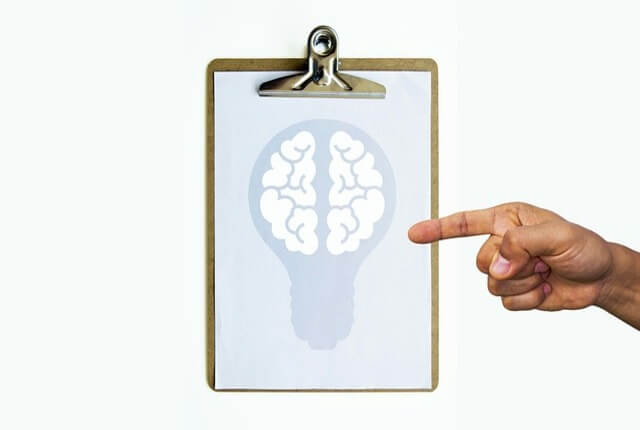Dopamine is a brain chemical that plays role in determining how we feel and what we do in our daily life along with other genetic and environmental factors. Today’s post will delve a little deeper as to how it influences our bodies and the quality of our day-to-day living.
What is dopamine?
Dopamine is a chemical naturally present in our body. Its presence affects our mood and emotions. It is a neurotransmitter and transmits signals from our brain to the targeted cells. This process plays a salient role in how we experience happiness and feel pleasure. For instance, when we are about to receive an award or a reward for something good, we feel satisfied and the brain triggers the chemical messenger to us in the form of dopamine.
Being a vital neurotransmitter in the human body, it impacts the internal functions of –
- Digestion
- Flow of blood
- Functions of the kidney and heart
- Motivation
- Learning
- Digestion
- Attention
- Sleep
- Response to stress
- Motor control
- Processing of pain
- Behavior associated with the seeking of reward and pleasure
However, we should also know that dopamine by itself does not affect all of the above functions as it needs to work in sync with other neurotransmitters and chemicals in our bodies for optimal results.
How much dopamine do we actually need?
Balance is the key

When it comes to our general wellness and health, everything, both internally and externally should be in balance. The same holds true for all the other brain chemicals working in our bodies. Dopamine should be in the right amounts for optimal physical and mental health. It contributes to our happiness, motivation, productivity focus, alertness and happiness.
Known as the “feel-good chemical”, it is released when we are in rewarding and mentally satisfying environments. For most people, successful interpersonal interaction in real life or on social media stimulates its release. For instance, for some people, the use of a mobile phone is their most preferred tool for social interaction, especially those active on social media, so they tend to have the habit of checking their phones often to get that hit of dopamine frequently.
Taking advantage of the above, social media apps that trigger community interaction like Facebook, Snapchat and Instagram come up with innovative features to get people hooked to them. When their posts are published, commented on, shared and liked, they get that hit that makes them happy.
What happens when the dopamine levels in the body are high?
Is too much of dopamine good for you? Well, no, it is not.
If there is a flood of it levels in our bodies, it leads to a high feeling of euphoria and compulsive behavior that can be dangerous, if not in check.
Symptoms of low dopamine

In case, you have poor levels of dopamine in the body, you will notice the following symptoms-
- Reduction in alertness
- Problems concentrating
- Poor coordination
- Difficulties moving
- Reduced enthusiasm and motivation
A lack of sufficient sleep or insomnia will induce low dopamine levels in the body. Even if you do not sleep at all, these levels will fall drastically. A study conducted by Pub Med Central – a widely respected database in the USA from the National Institutes of Health in 2012, stated that a deprivation of sleep will result in the reduction of dopamine levels when you wake up in the morning.
Health conditions associated with reduced dopamine levels
Some health conditions that might be associated with reduced dopamine levels are-
- Parkinson’s Disease- Symptoms here include slowed movement, tremors and periodical psychosis.
- Depression– Includes the feelings of sadness, problem with sleep and changes in cognitive patterns
- Infantile Parkinsonism- Dystonia or the dopamine transporter deficiency syndrome- It causes a disability in movement like that of Parkinson’s Disease.
What happens when you have too much of dopamine?
Having a surge of dopamine will make you feel on top of the world. However, it can also result in the following-
- Hallucinations
- Mania
- Delusions
Too much of dopamine in the body also results in-
- Addiction
- Obesity
- Schizophrenia
How do drugs affect the dopamine levels in the body?
A habit can be formed if you make certain drugs interact with dopamine in your body. For instance, alcohol, nicotine and other drugs with addictive traits trigger the cycle of dopamine. You get an instant rush of the chemical that before you know it, you want more.
As the habit of substance intake develops, your brain responds to it by toning down the levels of dopamine in the body. This makes you want more of the substance to attain the same levels of pleasure and mental satisfaction.
Beware of addiction
When you overdo any substance consumption habit, the receptors make you lose interest in positive things that you liked doing before. You tend to act more out of compulsion than reason. The ability to resist substances that trigger the onslaught of dopamine rushes becomes lesser. Your “want” for them becomes a “urgent need” and in case, you stop, you will face a series of emotional and physical withdrawal symptoms. This becomes an addiction.
Even if you stop using any of the substances above for a long time, exposure to it later will trigger the same desire and place you at the risks of relapsing. Dopamine alone never holds the responsibility of causing addictions as there are other things like environmental factors and genetics that also play a crucial role here too.
So, when it comes to dopamine and its negative effects caused due to high doses, keep the above in mind. Keep the chemical in balance always to lead a happy and healthy life with success.





